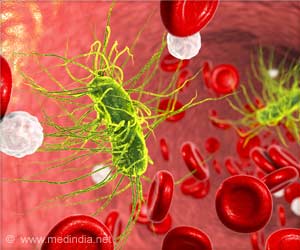Antenatal corticosteroid therapy (ACT) for women at risk of giving birth prematurely should be reviewed to avoid low birth weights in born babies.

TOP INSIGHT
Clinical guidelines for antenatal corticosteroid therapy (ACT) given women should be reviewed, as there is an association between steroid treatment and lower birth weight.
Read More..
Complications resulting from being born premature, especially those related to breathing problems, are the leading cause of death in infants and morbidity in survivors. Therefore, ACT is used before birth to help mature the lungs rapidly. "
Professor Rodriguez continued: "The problem is that it is difficult to know which women will give birth prematurely and those that will go to full term when there are signs of preterm birth, so this treatment is used as a precaution. We have known from animal studies that steroid treatment could affect foetal growth. It is still unclear whether the reduction in birth weight of the treated infants is directly caused by the drug or due to the complications that led to the treatment. This study adds weight to calls for a review of the current guidelines for management of threatened preterm birth and for who should receive steroid treatment."
In many countries, including the UK, US and in Europe, steroids may be offered to pregnant women at risk of giving birth before their baby has reached full term (after 37 weeks). The injected steroid treatment helps to prepare their unborn baby's lungs, which mature late in development, and can reduce the risk of respiratory illnesses linked with preterm birth.
Previous studies in both animal and humans have linked corticosteroids to smaller birth size, but the link between ACT and birthweight has been questioned.
From the study group, more than 4% of children were born preterm (before 37 weeks). A total of 4887 (1.8%) women were given ACT, and 2,173 of exposed babies (44%) went on to be born at term (37 weeks). All births were matched as closely as possible - with each child who received ACT matched to multiple children who did not, for comparison.
The team also found that babies who received ACT also received more care overall in hospital than matched children not treated.
On average, preterm babies whose mother's received steroid treatment weighed 220 grams less than infants who had not received treatment. The weight difference was 141 grams for near term babies and 89 grams for full-term babies.
The researchers highlight that while there is an association between steroid treatment and lower birth weight, it remains unclear whether this effect is a direct cause of the drug, or an indirect consequence through some other mechanism.
The team advises that a review of clinical guidelines may be appropriate, and plans to carry out further analysis in other populations to investigate the link between ACT and low birthweight.
Professor Marjo-Riitta Jarvelin, co-lead of the study from Imperial's School of Public Health said: "At present, steroid therapy is the only tool we have for maturing the lungs before premature birth. ACT has been used since 1972 and attributed as a life-saving treatment for babies who would otherwise had developed a severe lung disease. Because of the wide-spread use of ACT, it is critical that there is a clear understanding of other potential longer term effects. In this respect the previous studies have not been large enough or of the quality needed. The data for the present study are from a setting of high antenatal care and cover annually all births in a country. Nonetheless it is still observational and so it is very difficult to distil causality. The evidence, however, suggests that using this therapy is not a one-size-fits-all approach. Many women may not need the treatment at all. We may need better ways of determining which deliveries will eventually lead to preterm birth with the risk for serious neonatal outcomes. The fact that this treatment may reduce the foetal growth should be considered in future research and recommendations."
Source-Eurekalert
 MEDINDIA
MEDINDIA

 Email
Email








